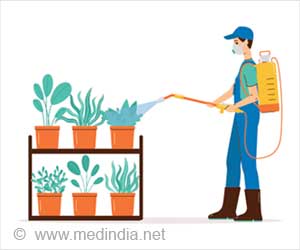Inaugurating the first National Health Writers & Communicators Convention organised by the Health Essayists and Authors League (HEAL) today, the Union Minister for Health & Family Welfare, Dr. Anbumani Ramadoss said that health journalists, writers and communicators must themselves be well prepared and equipped to create massive and sustained awareness among people on matters relating to health. He said public health is a massive challenge for our country and lack of health awareness among the masses is a great hindrance towards health promotion. Besides President and other members of the HEAL, Journalists, both Indian and from neighbouring countries were also present at the convention.
The following is the summary of the Health Minister’s speech:With our teeming population coupled with inadequate infrastructure, public health is a massive challenge for our country. Majority of our population is in the grip of one or the other scourge – nutritional deficiency, infectious diseases, water-borne and vector-borne diseases, etc. This problem is compounded by low level of literacy in general and lack of health awareness in particular.
It is better we prevent and control the diseases through public hygiene, affordable nutrition and clean drinking water. This would require a massive and sustained awareness campaign. Needless to say, the health journalists, writers and communicators play a crucial role here in dissemination of knowledge and information as well as in comprehension of the complex issues at hand. Once the communicator is properly equipped, half of the awareness battle may be won. Unfortunately, this is not happening. I wish HEAL and its members succeed in their efforts. It would be a great support not only to the Government but also a great service to the society.
The proposed outlay in the 11th Five-year plan for Health sector in the Central sector is Rs. 1,36,147 crores, against an expenditure of Rs. 41,262 crores during 10th plan, registering an astounding increase of 229%. For the year 2008-09, the total outlay of my Department of Health & Family Welfare increased by 14% to Rs. 16,000 crores out of which the NRHM component is 74.56% at Rs. 11,930 crores. The balance outlay of Rs. 4070 crores is towards Health (Rs. 3650 crores) and Health Research (Rs. 420 crores).
On the health side, the emphasis will be on developing human resources and evolving national programmes for healthcare of the elderly and prevention and control of diabetes, cardiovascular diseases and stroke etc.
Another important initiative would be the National Urban Health Mission for the benefit of urban poor families, slum dwellers, migrant workers and extremely vulnerable population who would be identified by the Urban Local Bodies. Synergies are envisioned with schemes within and outside health sector for maximizing benefits.
Today the Non-Communicable Diseases (NCDs), especially Cardiovascular Diseases (CVD’s), Diabetes Mellitus, Cancer, Stroke and Chronic Lung Diseases have emerged as major public health problems, due to an ageing population and environmentally driven changes in behaviour. The number of deaths due to Ischemic Heart Diseases in India is projected to increase from 1.2 million in 1990 to 1.6 million by the year 2000, and to 2 million by 2010. The premature morbidity and mortality in the most productive phase of life is posing a serious challenge to Indian society and its economy. It is estimated that in 2005 NCDs accounted for 5,466,000 (53%) of all deaths (10,362,000) in India.
Several new initiatives have been taken in the field on non-communicable diseases e.g. National Deafness Control Program, National Program for health care of elderly, National Oral health Program. Efforts are being made to utilize the advancement in the field of IT for health care through telemedicine.
There are several issues, which needs to be settled like unique national ID for purpose of health care (medical records), uniform standards in health care equipments etc (for compatibility of various models). Assessment of hazards from mobile and other gadgets also need to be looked into since we have maximum no. of mobile users next to China.
In recent times, I find our newspapers and electronic media have started devoting more space to health-related stories, particularly to research reports from the Western world. Some of these reports tend to give wrong messages to the readers, besides creating an expectation based on inadequate information or wrong interpretation of the study reports. We should guard against such tendency.
I wish all the best to the HEAL and success of the First National Health Writers and Communicators Convention as well as the Conference on Future of Health Care. I congratulate the office-bearers and all the members of the HEAL for their initiative and effort to organise this convention.
Source-PIB
SRM/L





